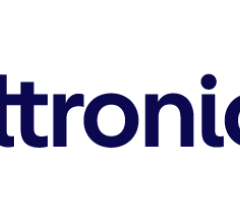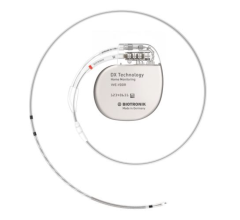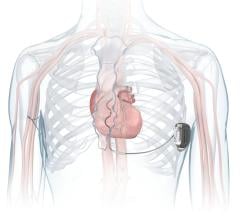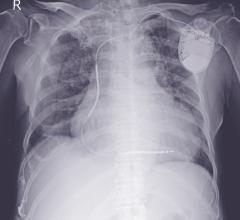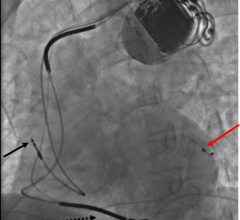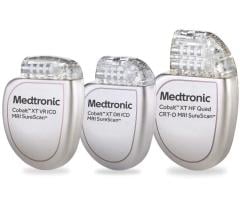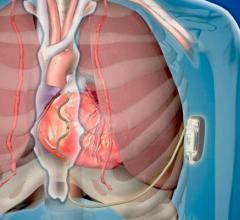Dual-chamber pacing coupled with Boston Scientific's AV Search Hysteresis (AVSH) programming has the potential to reduce heart failure hospitalization and all cause mortality for patients at risk for sudden cardiac death according to results of the INTRINSIC RV trial, which were published this week in the January issue of the journal Circulation.
The largest ICD study to date met its primary endpoint, showing that dual-chamber pacing in combination with AVSH programming -- a proprietary feature from Boston Scientific that proactively reduces right ventricular (RV) pacing when the heart's natural rhythm is present -- performs as well as single- chamber pacing in reducing heart failure hospitalization and all cause mortality (p
"The results of this landmark study are important because dual-chamber ICD programming can provide benefits to patients that single-chamber programming may not, such as improved heart function and enhanced arrhythmia detection," said Brian Olshansky, M.D., Professor of Medicine, Director of Cardiac Electrophysiology, University of Iowa Hospitals and a lead investigator of the trial. "Prior studies have suggested that dual-chamber devices may lead to unnecessary RV pacing, which in some patients may pose safety concerns. This study showed that these perceived safety concerns were not present in the patient arm where dual-chamber pacing with AV Search Hysteresis was used."
INTRINSIC RV (Inhibition of Unnecessary RV Pacing with AV Search Hysteresis in ICDs) is a multicenter, randomized, prospective, non- inferiority trial that enrolled 1,530 patients with a current indication for an ICD at 108 centers in the U.S., Germany, Italy and Australia. The primary endpoint was a composite of all-cause mortality and heart-failure hospitalization. Patients in the dual-chamber pacing with AVSH group experienced 33 percent fewer deaths and heart-failure hospitalizations compared to single chamber pacing (p=0.072, superiority).


 January 13, 2026
January 13, 2026 

